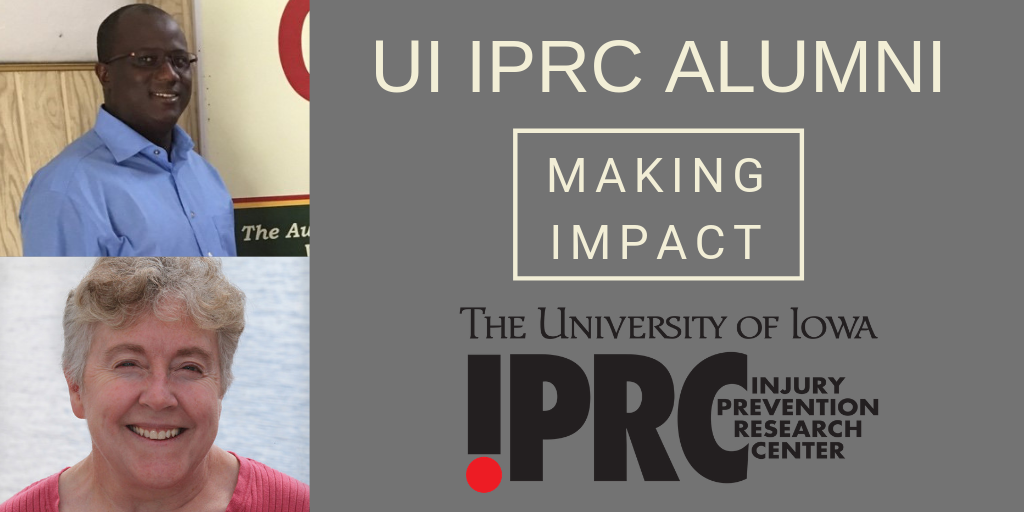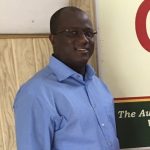Alumni from of the UI Injury Prevention Research Center (IPRC) are making an impact around the country and the world to reduce injuries and violence.
Here are two of their stories:

Injuries & violence in tribal communities
Carla Britton, PhD, Epidemiology, 2010
As a lead epidemiologist at the Alaska Native Epidemiology Center in Anchorage, AK, Carla Britton works to improve the health status and reduce health disparities among Alaska Native and American Indian people living in Alaska.
Her center is one of 12 in the U.S. serving every Indian Health Service region and the Urban Indian Health Programs. These centers provide public health and epidemiologic services to Alaska regional tribal health organizations and other tribal entities.
“On any given day, I might provide technical assistance to tribal health organizations working to reduce the impacts of suicide or substance abuse, work with our hospital management team to describe the impacts of a health issue on our healthcare system, or help our tribal health partners think about novel surveillance methods to identify risk factors, both positive and negative, that might be associated with an important health outcome,” Britton said.
Britton’s work focuses mostly on injuries related to substance abuse, violence and suicide. However, she said she hopes to work more in the area of unintentional injuries, like all-terrain vehicle (ATV) crashes.
“This is an area that is often overlooked and underfunded despite its significant impact on young people in Alaska,” she said.
Britton said two things she has learned on the job stand out to her.
“The first is that the best, most sustainable solutions to health problems are community-driven. The second is that focusing only on disparities and not also on strengths leaves individuals and communities feeling unempowered to make change,” she said.
Having the opportunity to work with top injury researchers at the UI IPRC who were invested in translating research to practice was incredibly useful during her studies, Britton said.
Her advice to UI students: Take advantage of the knowledge at Iowa and the opportunities to explore the area of injury that you are personally interested in.
Global road safety
Edrisa Sanyang, PhD, Occupational & Environmental Health, 2016
 When Edrisa Sanyang was a doctoral student at the University of Iowa, he started the first-ever trauma registries in his home country, The Gambia. Now, as an assistant professor of environmental & occupational health at Western Kentucky University, he works with graduate students interested in global road safety research.
When Edrisa Sanyang was a doctoral student at the University of Iowa, he started the first-ever trauma registries in his home country, The Gambia. Now, as an assistant professor of environmental & occupational health at Western Kentucky University, he works with graduate students interested in global road safety research.
Data from these registries were published in peer-reviewed journals and are now used to guide policies and programs in The Gambia.
“One of the major findings from the trauma registry data was that more than one-third of traffic deaths were students with the mean age of 14 years,” Sanyang said. “This spurs my interest to further research youths’ risk perception of road traffic crashes. This is a big project not only in Gambia, but also in Ghana, Tanzania and Uganda.”
Sanyang also works in the area of opioid use and occupational injuries in industry workers in Southcentral Kentucky. He said his time with the UI IPRC gave him skills in training young professionals and conducting global road safety research.
“I get to routinely use all these skills here at WKU. It even becomes easier now as the networks that were created and contacts established are still committed to working together to improve public health where it is needed most,” Sanyang said.
His advice to students: Get contemporary skills needed in the field. The injury field will continue to grow in all dimensions—research, service and policy/advocacy.
Read more alumni stories here.
Published May 9, 2019